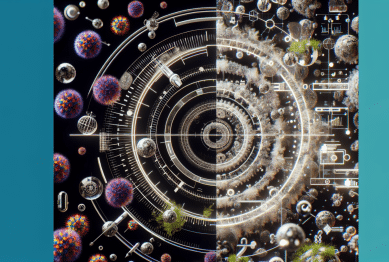In today’s world, we are constantly bombarded with messages that tell us more is better. Whether it’s more possessions, more achievements, or more social media followers, the societal narrative often revolves around the idea that happiness is derived from abundance. However, a growing trend is challenging this long-held belief: the shift from a mindset of ‘more’ to one focused on ‘meaningful.’
This shift reflects a deeper understanding that true fulfillment comes not from the pursuit of endless consumption but from creating a life with purpose, connection, and value. Let’s explore why this mindset shift is gaining traction, how it improves our well-being, and practical steps you can take to live a more meaningful life.

Why ‘More’ Is No Longer Enough
For decades, we have been conditioned to believe that more is synonymous with better. The idea of accumulating more material wealth, achieving more success, or gathering more experiences has driven much of our societal behavior. This mindset has been perpetuated by advertising, social media, and the general consumer culture. But as the world becomes more interconnected and information-driven, many are realizing that the pursuit of more leads to stress, dissatisfaction, and emptiness.
- The Illusion of More: While acquiring more things can bring momentary pleasure, it does not guarantee long-term happiness. Research from Harvard Medical School suggests that those who chase material wealth often find themselves unsatisfied and anxious, despite their increased possessions. As people attain their goals of “more,” they often experience a sense of hollowness, realizing that the quest for more can never be fully satisfied.
- The Rise of Mental Health Issues: As people strive for bigger and better, mental health concerns such as anxiety, depression, and burnout have become more prevalent. The pressure to keep up with societal expectations and material success has been linked to increased stress. According to a study published in Psychological Science, individuals who focus on materialistic values tend to experience greater levels of dissatisfaction and mental health challenges.
- Environmental and Ethical Concerns: In addition to the personal costs, the global push for more has taken a toll on the planet. The environmental impact of consumerism is profound, with resource depletion and waste becoming significant problems. As climate change and sustainability take center stage in global discussions, people are beginning to question the ethics of consuming more and the long-term consequences of their actions.
What Does a Meaningful Life Look Like?
As society begins to embrace the shift from ‘more’ to ‘meaningful,’ the focus moves from external markers of success to internal values that align with a deeper sense of fulfillment. This change involves recognizing that lasting happiness often comes from within and prioritizing experiences, relationships, and values over material wealth.
- Meaning Over Materialism: A meaningful life centers around purpose, personal growth, and connection. Rather than accumulating wealth and status, individuals seek to live in alignment with their values and passions. According to research from the American Psychological Association, people who focus on intrinsic goals like personal growth and helping others report higher levels of happiness and overall well-being.
- Purpose-Driven Living: Living with purpose is one of the cornerstones of a meaningful life. Purpose not only provides direction but also fosters resilience during difficult times. Studies show that people with a sense of purpose tend to live longer and experience lower rates of mental health issues. Whether it’s contributing to a cause, engaging in meaningful work, or nurturing personal relationships, living with purpose increases overall life satisfaction.
- Quality Over Quantity: When the focus shifts from quantity to quality, individuals tend to find greater joy in fewer, more impactful experiences. This shift is reflected in the growing interest in experiences over possessions. For example, research indicates that travel, time spent with family and friends, and learning new skills contribute more to happiness than purchasing material goods.
The Benefits of the ‘Meaningful’ Mindset
The shift from ‘more’ to ‘meaningful’ is not just about living with fewer possessions—it’s about prioritizing what truly brings joy and fulfillment. The benefits of adopting this mindset extend far beyond material wealth and focus on personal and societal well-being.
- Improved Mental Health: A focus on meaningful living can drastically improve mental health. Studies show that people who focus on relationships, growth, and contribution have lower rates of stress and anxiety. A 2021 study published in Psychological Science found that those who engage in purpose-driven activities report greater life satisfaction and emotional well-being.
- Stronger Relationships: When you shift your attention from accumulating things to cultivating relationships, you create stronger bonds with others. Meaningful connections with family, friends, and the community foster a sense of belonging and fulfillment. Harvard’s longitudinal study on adult development showed that relationships—not wealth or career success—are the most significant predictors of happiness and health.
- Sustainable Living: Focusing on meaning instead of more also leads to a more sustainable lifestyle. Mindful consumption encourages individuals to make deliberate choices about how they spend their time, money, and energy. This reduction in overconsumption not only benefits the individual but also the environment. Embracing sustainable practices, such as purchasing ethically-produced goods or reducing waste, is becoming a key part of the shift toward more meaningful living.
How to Shift from ‘More’ to ‘Meaningful’
The transition from living a life centered on accumulation to one focused on meaning is not easy, but it is possible with intentional effort. Here are a few steps you can take to make the shift:
- Reflect on Your Values: Take time to identify your core values. What truly matters to you? Is it family, creativity, kindness, or learning? Understanding what gives your life purpose is the first step in moving away from the superficial pursuit of more. Write down your values and make sure your decisions and actions align with them.
- Practice Gratitude: Gratitude is a powerful tool for cultivating a meaningful mindset. Instead of constantly yearning for more, focus on appreciating what you already have. Keeping a daily gratitude journal can help shift your perspective and increase your sense of fulfillment.
- Set Purposeful Goals: Move beyond the pursuit of material success and set goals that reflect your values. Whether it’s dedicating more time to your family, pursuing a hobby, or contributing to a cause, focus on goals that bring long-term satisfaction. Purpose-driven goals help keep you grounded and focused on what truly matters.
- Simplify Your Life: Decluttering both your physical and mental space can lead to more meaningful living. This doesn’t mean eliminating everything you own, but rather focusing on the essentials. Reduce distractions and invest your time and resources in activities that bring you joy and fulfillment.
- Prioritize Relationships: Invest time in building and nurturing meaningful relationships. Social connections are a critical source of happiness, and focusing on quality over quantity can lead to deeper, more rewarding connections. Make an effort to spend time with people who share your values and uplift your spirit.
Conclusion
The shift from ‘more’ to ‘meaningful’ is a transformative journey toward a richer, more fulfilling life. By moving away from materialism and focusing on purpose, relationships, and personal growth, we can create lives that are aligned with what truly matters. This shift not only enhances our individual well-being but also fosters a more sustainable and connected world.
In a society that constantly promotes excess, it’s crucial to remember that meaning far outweighs the temporary satisfaction of having more. By embracing this mindset, we can find true happiness, lasting fulfillment, and contribute to a better world.
References:
- American Psychological Association (2023). “The Science of Meaningful Living.” Available at: https://www.apa.org
- Harvard Medical School (2023). “Purpose and Health: Why Meaningful Living Matters.” Available at: https://www.health.harvard.edu
- Psychological Science (2023). “How Purpose and Relationships Contribute to Happiness.” Available at: https://journals.sagepub.com









